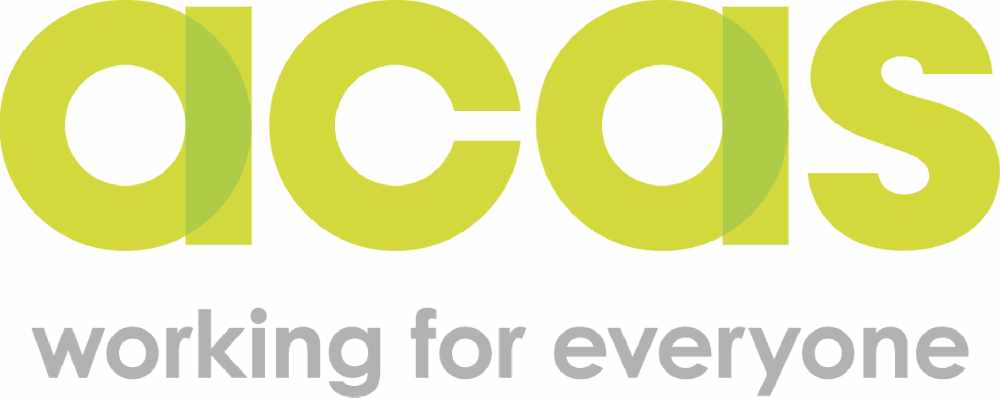
A new survey from Acas has found that over a third of employers (37%) are likely to make staff redundancies in the next three months.
Acas commissioned YouGov to ask British businesses about their redundancy plans and knowledge of the law in this area. The poll found that:
- Six out of 10 large businesses said they were likely to make redundancies in the next three months;
- For businesses that are likely to make redundancies, over a quarter (27%) said they plan to do this remotely over video chat or a phone call; and
- One in four (24%)bosses are unaware of the law around consulting staff before making redundancies. This increases to one in three (33%) where businesses have fewer than 50 workers.
Acas Chief Executive, Susan Clews, said:
“Businesses are facing extremely difficult circumstances due to the coronavirus crisis and our poll reveals that many are considering redundancies.
“Acas advice for bosses is to exhaust all possible alternatives to redundancies first but if employers feel they have no choice then they must follow the law in this area.
“Our survey reveals that a third of small businesses do not know about their legal responsibilities on consulting staff when considering redundancies. It is important for them to act responsibly and follow our advice or they could be subject to a costly legal process.”
If an employer finds there are no other choices than to make redundancies then there are strict rules on consulting staff that they must follow.
An employer must discuss any planned changes and consult with each employee who could be affected. This includes staff who may not be losing their jobs but will be impacted.
The minimum consultation period varies depending on the number of employees that an employer wishes to make redundant. By law, employers who plan to make 20 or more staff redundant over the next three months (90 days) must also consult a recognised trade union or elected employee representatives about the proposed changes.
For 20-99 redundancies, consultation must start at least 30 days before the first dismissal can take effect, and for 100 or more redundancies, it has to start at least 45 days before.
If an employer does not meet consultation requirements, employees can take their employer to an employment tribunal. If successful, the employer may have to pay up to 90 days’ full pay for each affected employee. Someone can also make a claim of unfair dismissal to an employment tribunal on the grounds that they were not consulted, or the consultation was not meaningful.
Consulting employees and unions may help to find alternative solutions to making redundancies.
Acas advisors have seen many examples of this joint working that’s produced creative alternatives to job losses. Such as part-time working, cuts to overtime, finding alternative roles and retraining.
Acas has advice for staff and employers about redundancies: www.acas.org.uk/redundancy
- All figures, unless otherwise stated, are from YouGov Plc. Total sample size was 2097 adults. Fieldwork was undertaken between 14th - 19th September 2020. The survey was carried out online. The figures have been weighted and are representative of British business size.
- Participants were asked how likely, if at all, that they or their organisation are to make staff redundancies in the next 3 months (between now and December 2020). The results were that 37% were likely to make redundancies; 56% were unlikely to make redundancies; and 7% didn’t know. For large businesses that employ more than 250 employees (sample size 834): 60% were likely to make redundancies; 33% were unlikely and 7% didn’t know.
Of the 779 of total respondents that said they were likely to make redundancies, businesses were asked if they planned to manage this process more remotely (i.e. via video call or phone) or more face-to-face, or a mixture of both? The results were:
- More remotely – 27%
- More face-to-face – 33%
- A mixture of both- 33%
- Don’t know – 8%
The 2097 British businesses were also asked if they were aware of what the current law states about consulting staff before making redundancies? 76% said yes and 24% said no. The response from small businesses (sample size 1000) that employ less than 50 employees was that 67% said yes and 33% said no.
- Acas has a dedicated page for businesses that need support during this difficult time: https://www.acas.org.uk/business-support
- Acas offers training and workshops to help with businesses with employment related issues including making redundancies https://www.acas.org.uk/training
- Acas, CBI and TUC issued a joint statement for businesses handling and considering redundancies: https://www.acas.org.uk/joint-statement-acas-cbi-tuc
- Acas stands for Advisory, Conciliation and Arbitration Service. Acas provides free and impartial information and advice to employers and employees on all aspects of workplace relations and employment law. We support good relationships between employers and employees which underpin business success. We also provide good value, high quality training and tailored advice to employers. Our expertise is based on millions of contacts with employers and employees each year. Acas is an independent and impartial statutory body governed by a Council made up of members from business, trade unions, academia and the law.
- For media enquiries please contact Robbie Hurley on 0330 109 3899 / rhurley@acas.org.uk For out of hours media enquiries please call the out of hours duty press officer on 0330 109 7070.


 CHESTER FC STATEMENT
CHESTER FC STATEMENT
 MATCH REPORT: ELLESMERE PORT TOWN 3 - 4 CHESTER WOMEN
MATCH REPORT: ELLESMERE PORT TOWN 3 - 4 CHESTER WOMEN
 People in Chester are invited to join a singing celebration to mark Global Intergenerational Week
People in Chester are invited to join a singing celebration to mark Global Intergenerational Week
 St George returns to Chester on Tuesday 23rd April
St George returns to Chester on Tuesday 23rd April
 Man jailed for stalking Chester MP
Man jailed for stalking Chester MP
 Hundreds of well-dressed ducks gear up for Chester Duck Race
Hundreds of well-dressed ducks gear up for Chester Duck Race
 Police appeal for witnesses to fatal collision in Elton as family pay tribute
Police appeal for witnesses to fatal collision in Elton as family pay tribute
 MATCH REPORT: WYTHENSHAWE 4 - 2 CHESTER FC WOMEN
MATCH REPORT: WYTHENSHAWE 4 - 2 CHESTER FC WOMEN
 Cheshire Police among top performing forces for tackling drink and drug driving
Cheshire Police among top performing forces for tackling drink and drug driving
 ROLES UP FOR GRABS AS CURTAIN SET TO RISE ON THEATRE COMPANY'S NEW PLAY
ROLES UP FOR GRABS AS CURTAIN SET TO RISE ON THEATRE COMPANY'S NEW PLAY
 Pink Floyd: The Dark Side of the Moon returns to Jodrell Bank
Pink Floyd: The Dark Side of the Moon returns to Jodrell Bank
 Welsh Water presents to Chester Residents Associations about pollution in the River Dee
Welsh Water presents to Chester Residents Associations about pollution in the River Dee
 SOLOISTS SET TO SHINE DURING SPECIAL CHESTER PERFORMANCE OF HANDEL'S MESSIAH
SOLOISTS SET TO SHINE DURING SPECIAL CHESTER PERFORMANCE OF HANDEL'S MESSIAH
 Chester and Wirral Football League - Latest Results
Chester and Wirral Football League - Latest Results
 BLUES MATCH REPORT - BRACKLEY TOWN 3 - 1 CHESTER FC
BLUES MATCH REPORT - BRACKLEY TOWN 3 - 1 CHESTER FC
 Inspired Villages complete a 7,500-Mile Charity Cycling Challenge in aid of PROSTaid UK
Inspired Villages complete a 7,500-Mile Charity Cycling Challenge in aid of PROSTaid UK
 Jail term for man who stalked Chester's MP
Jail term for man who stalked Chester's MP
 CFCW MATCH PREVIEW: WYTHENSHAWE v CHESTER FC WOMEN
CFCW MATCH PREVIEW: WYTHENSHAWE v CHESTER FC WOMEN
 BLUES MATCH PREVIEW: BRACKLEY TOWN v CHESTER FC
BLUES MATCH PREVIEW: BRACKLEY TOWN v CHESTER FC
 How to keep your garden healthy during hotter summers
How to keep your garden healthy during hotter summers